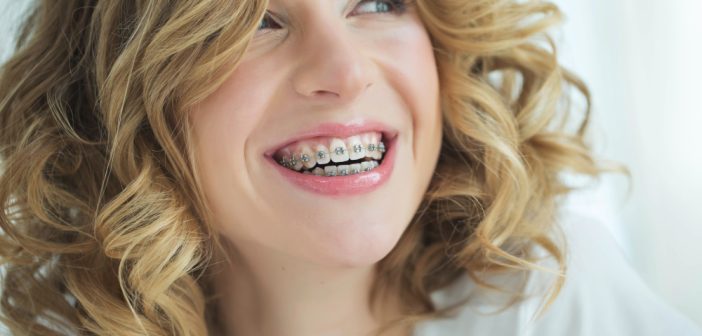“Nine in 10 people have teeth that are at least slightly misaligned, or maloccluded, and three quarters of us have wisdom teeth that do not have enough room to emerge properly,” said Peter S. Ungar a paleontologist and dental anthropologist at the University of Arkansas. “Simply put, our teeth do not fit in our jaws.”
So, we don’t have the perfectly straight teeth of our hunter-gatherer ancestors with their jaw-strengthening diets — does it really matter? As with many health topics, it depends. Sometimes, crooked teeth can cause other dental problems or even increase your risk of certain medical issues. But sometimes, a slightly crooked smile is perfectly fine and there’s no medical reason to change it. If you do decide to straighten your teeth, you have options. Be sure to discuss these with your dentist, and read on to get a little more information before your visit.
Dental health risks of crooked teeth
Having crowded teeth increases your risk of developing gum disease and tooth decay. One reason for this is that it’s hard to brush and floss crowded teeth thoroughly. Bacteria and acids build up, wearing away the outer layers of your teeth. That decay causes the gums to recede, further exposing teeth to bacteria and leading to cavities.
“Bacteria can be removed through regular brushing and flossing,” according to orthodonticassoc.com. “However, when teeth are crowded, it’s difficult to brush and floss them properly, which increases the likelihood of tooth decay or gingivitis.”
Other health risks of crooked teeth
Research has shown that gum disease doesn’t only affect your mouth – the bacteria “can travel throughout the body, triggering inflammation in the heart’s vessels and infection in heart valves,” according to pennmedicine.org.
Another troubling trend is that “certain malocclusions have been linked to obstructive sleep apnea,” according to orthodonticassoc.com. “The shape of the mouth, throat, and tongue can contribute to the development of this condition. In some cases, an improperly aligned jaw can cause the tissues of the mouth to block the airway and create an obstruction.”
Malocclusion may also increase the risk of the following conditions:
- Speech disorders
- Jaw and head pain
- Difficulty eating
- Difficulty breathing
If you are unhappy with the way your teeth look, this may lower your self-esteem and lead to social avoidance.
Weighing your options
The decision on whether or not to straighten crooked teeth is personal.
“For many, a lack of funds or dental health insurance may affect a decision to straighten teeth. Health issues may also factor into a decision,” said Corey Whelan at healthline.com. “If your crooked teeth make you feel self-conscious, that may also be a reason to straighten them. But remember, imperfect teeth can be memorable and unique.”
If you do decide to straighten your or your child’s teeth, there are several options to choose from. For children, a growth modification device can help move their jaw into a better position. Braces or retainers can be a great option for older children or adults. If your crooked teeth are the result of jaw problems, surgery may be needed to correct the issue. And if sleep apnea is in the mix, a company called Vivos can be a game-changer.
We may not have the perfectly straight teeth our hunter-gatherer ancestors did, but that doesn’t have to mean years of braces. Sometimes, intervention isn’t needed. Other times, retainers or a growth modification device can help. Either way, talk to your dentist about your best options, and keep smiling!
A version of this article was published by The Daily Herald. It has been republished here with permission.




